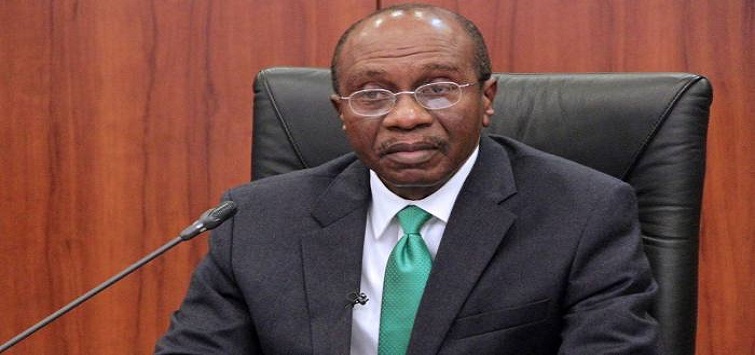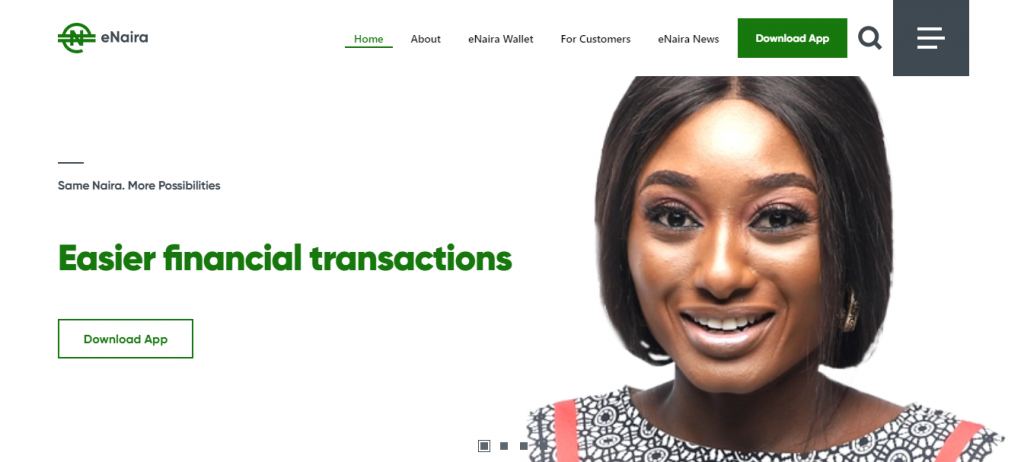Three weeks after postponing the much-anticipated launch of Nigeria’s digital currency, e-naira, the Central Bank has announced that President Muhammadu Buhari will launch the digital currency at the State House Abuja, tomorrow.
A statement from CBN’s Director, Corporate Communications, Nwanisobi, confirmed that the launch which had been postponed partly to allow for the country’s 61st independence celebration on the first of October is now set to hold tomorrow. A previous statement by Mr Nwansiobi to announce the postponement said in part:
“The CBN took the decision to postpone the launch, which had been initially planned to coincide with the Independence anniversary, in deference to the mood of national rededication to the collective dream of One Nigeria.”
According to the CBN, the theme of the e-Naira will be: “Same Naira, more possibilities”.
He emphasised that the launch of the eNaira is a culmination of many years of research work by the central bank in advancing the boundaries of the payments system to make financial transactions easier and seamless for members of different strata of society.
The apex bank said that “the e-Naira marks a major step forward in the evolution of money as well as the CBN’s commitment to ensuring that the digital currency, like the physical Naira, is accessible by everyone”.
According to him, the central bank and its other partners were working tirelessly to ensure a seamless process that would be in the interest of all customers, particularly those in rural areas and the unbanked population.
On stakeholders participation
The CBN in its statement sent out to address concerns that have been expressed by observers and prospective users before the formal launch. On the question of leaving out local stakeholders when the CBN announced that the engagement of a Barbados-based fintech, Bitt Inc, as its technical partner for the creation of the e-Naira digital currency.


The apex bank claimed in its statement that it had designed the digital currency after a series of engagements with relevant stakeholders including the banking community, fintech operators, merchants, and indeed, a cross-section of Nigerians.
Nwanisobi further stated that “The CBN will continue to work with relevant partners to ensure a seamless process that will benefit every user, particularly those in the rural areas and the unbanked population”.
“Following Monday’s formal launch by the president, the bank will further engage various stakeholders as we enter a new age consistent with global financial advancement”, the statement added.
On security and risks…
According to the Regulatory Guidelines on the e-Naira, users need to have e-Naira wallet is required to access, use and hold e-Naira. CBN Governor, Godwin Emefiele has said that the apex bank is aware of the possible risks associated with launching a digital currency.
He assured users that the bank has put in place appropriate mitigation mechanisms for safer operation. Mr Emefiele said:
“We are not going to pretend that there are no risks in opening your system up. We will look at the various products, determine the risks, determine the best way to mitigate the risks before opening it up. But it is a journey that we are determined and decided that we will start.”
Transaction limitation for users
To regulate the use of the digital Naira, the CBN’s regulatory guideline divided users into tiers and stipulated transaction and balance limits for individual and merchant users.


The Tier 0 category refers to users with telephone numbers without a verified National Identity Number (NIN). The daily transaction limit for this tier is N20,000 with a balance or eWallet limit of N120,000.
The Tier 1 category refers to users with a verified National Identity Number (NIN). The daily transaction limit is N50,000 and a balance limit o9f N300,000 balance.
However, users categorized as Tier 2 will be able to transact up to N200,000 daily with their e-Wallet and have a balance limit of N500,000. Meanwhile, users listed as Tier 3 can carry out daily transactions of N1 million and have a balance of N5 million.
The regulation also allows for merchants or duly accredited individuals and non-individual (corporates) to be authorised to conduct business in Nigeria with no limits.


Nigeria could become the first African country to launch a digital currency if the launch happens tomorrow. Only two countries in the world – the Bahamas and China, have officially launched a digital fiat currency.
Meanwhile, it appears to be a race between Nigeria and South Africa. The South African Reserve Bank is already exploring the feasibility of launching a digital Rand (ZAR) which can be used for general retail purposes by consumers in the country.
Ghana, Morocco and Kenya are among other African countries looking to introduce digital fiat currency at the earliest possible time.






